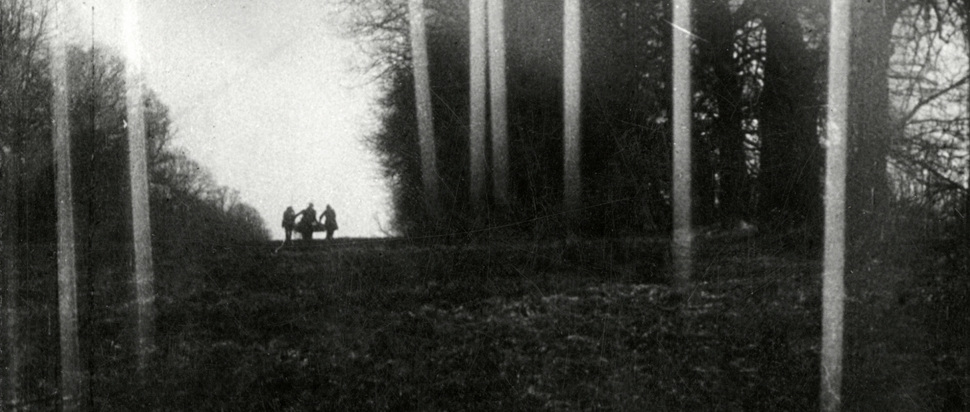The Fall of the House of Usher at HippFest
Ahead of the premiere of a new score to The Fall of the House of Usher at HippFest, we chat to musicians Elizabeth-Jane Baldry and Stephen Horne about the art of breathing life into cinema from the silent era
Read a preview of an arts festival this year and chances are it will begin by stating how starved live audiences have been over the course of the pandemic, suggesting that after two years of isolation, performer and consumer are recharged and ready to move forward with a renewed sense of purpose. This sentiment is as true of the Hippodrome Silent Film Festival as any other festival event, but it overlooks the eerie sense of time travel that tends to characterise silent film exhibition. While blue-balled writers, dancers, dramatists and musicians are ready to share a backlog of new ideas, the UK’s silent film accompanists will soon get to work exhuming corpses roughly a century old.
One of the most anticipated events planned for HippFest's return this year is a new score to Jean Epstein’s brilliant The Fall of the House of Usher from harpist Elizabeth-Jane Baldry and piano man Stephen Horne. “I like to say that we’re musical mediums, and that the film belongs to the spirit realm and the audience have come to try and get into contact with it,” declares Horne. “We’re trying to connect the two.”
The duo’s personalities are as complementary as their respective instruments, Baldry’s otherworldly warmth balanced by Horne’s thoughtful, academic manner. While both are upbeat and effusive as they discuss their latest project, a fundamental seriousness underpins the task at hand. “We’ve all seen silent films where the musicians have chosen to play up some of those old-fashioned looking elements,” Baldry notes. “I think in many ways this is disrespectful to the original creators. You want to make the music exciting for a modern audience, but you also have to respect the intention of the film… People go to silent films wanting to see a silent film, not a parody.”
Her musical partner concurs. “One way you can help the audience acclimatise to the lost language of silent film is by making the best music you can,” says Horne. “You can see a great film with a bad score and objectively recognise that it’s a great film, but the event won’t be enjoyable. We’re at the service of the film, so it’s quite a sense of responsibility. We can’t make or break the film, but rather people’s evenings.”
Readers may recall a 2015 Glasgow Film Festival screening of the same film in Pollokshaws Burgh Hall with a score built around Wurlitzer organ from Irene Buckley. The beauty of silent cinema, of course, is that the picture will take on new life in Baldry and Horne’s hands, and inevitably surprise Central Belt enthusiasts already well acquainted with it.
“We like to approach the music pretty much with our own themes and ideas, which are sometimes quite different to those of other people,” says Baldry. “It’s what can make the same film completely different, because a different musician will bring their own emotional response to it. This will usually be unique to that person’s personality. One of the reasons why I love working with Stephen so much is because we tend to both have a similar emotional response.”
“I’m very suggestible,” adds Horne. “I’d be very affected by listening to other scores and in a way it’s not helpful. We both start with a blank page, really.”
When asked if they consider a film’s wider context – such as its nationality or source material – the duo are more open to doing so. In Horne’s words, “those are factors in the process – certainly it’s quite nice to include inflections of the nationality if it’s appropriate to the film. But it’s not always appropriate. House of Usher’s a very avant-garde film and for me that’s foregrounded rather than its nationality… With this one, it’s more about creating atmosphere. There’s no single approach that works for every film. We take each on its own terms and don’t have a pre-ordained philosophy of how we should do it.”
However, Baldry notes the film’s place in the canon of French cinema and its influence on some of the country’s most celebrated work. “House of Usher is amazing. I actually felt weak after watching it because some of the imagery is so strong. You couldn’t get away with it in the 21st century; it’s so gothic and fantastic. I absolutely adore it. These amazing shots of the veiling, with the corpse just drifting across the marshes... great, cavernous corridors with leaves blowing along them and these fluttering curtains. It reminded me a bit of Jean Cocteau’s La Belle et la Bête and I wonder if Cocteau had actually watched Epstein’s film.”
For Horne, these evocative images influenced the score itself. “It’s absolutely a silent film, but paradoxically, part of that is how much it suggests sound and music. The whole film is full of images that imply sound – like wind, a guitar playing and strings breaking, bells ringing – very specific references to sound. It’s an absolute gift for musicians in that respect.”
HippFest, The Hippodrome, Bo'ness, 16-20 Mar
The Fall of the House of Usher screens with a live score by Elizabeth-Jane Baldry and Stephen Horne, 19 Mar, 8.45pm; the performance will be reprised at the Barbican, London, 10 Apr, 3pm
